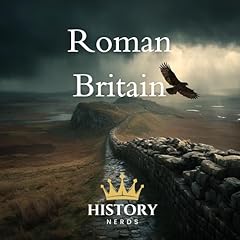
Culture and Anarchy
Failed to add items
Add to Cart failed.
Add to Wish List failed.
Remove from wishlist failed.
Adding to library failed
Follow podcast failed
Unfollow podcast failed
Buy for $15.48
-
Narrated by:
-
Michael Maloney
-
By:
-
Matthew Arnold
Culture and Anarchy is a series of periodical essays by Matthew Arnold, first published in Cornhill Magazine 1867-68 and collected as a book in 1869.
Arnold's famous piece of writing on culture established his High Victorian cultural agenda which remained dominant in debate from the 1860s until the 1950s. According to his view advanced in the audiobook, ‘Culture [...] is a study of perfection’. He further wrote that: ‘[Culture] seeks to do away with classes; to make the best that has been thought and known in the world current everywhere; to make all men live in an atmosphere of sweetness and light [...].’ His often quoted phrase ‘[culture is] the best which has been thought and said’ comes from the Preface to Culture and Anarchy.
Matthew Arnold (24 December 1822 – 15 April 1888) was a British poet and cultural critic who worked as an inspector of schools. He was the son of Thomas Arnold, the famed headmaster of Rugby School, and brother to both Tom Arnold, literary professor, and William Delafield Arnold, novelist and colonial administrator. Matthew Arnold has been characterized as a sage writer, a type of writer who chastises and instructs the reader on contemporary social issues.
©2013 Matthew Arnold (P)2013 Audible LtdListeners also enjoyed...
![A Tale of Two Cities [Tantor] Audiobook By Charles Dickens cover art](https://m.media-amazon.com/images/I/51Ecc++n0tL._SL240_.jpg)



















Editorial reviews
Matthew Arnold’s essays compiled in Culture and Anarchy present an idyllic view of culture as the sum total of a society’s intellect and proactive accomplishments shared by all of its inhabitants. He then details the forces that pull a society toward this vision of culture or, conversely, toward anarchy. British actor Michael Maloney performs the essays, capturing Arnold’s tone of reprimand mixed with positivism. Maloney’s enthusiasm for the subject gives the listener the impression of Arnold, noted conversationalist, chatting up a room, lecturing on some of his impassioned views on the world he lived in, which still feel relevant today.
People who viewed this also viewed...


















Culture and Society
Something went wrong. Please try again in a few minutes.
Great Reading
Something went wrong. Please try again in a few minutes.
Michael Maloney truly brought this audio book to life. He reads the text with a superb professional performance!
Superbly Read Audio Book!
Something went wrong. Please try again in a few minutes.
A timely classic beautifullly read by Mahoney.
Something went wrong. Please try again in a few minutes.
very poorly executed
Something went wrong. Please try again in a few minutes.


